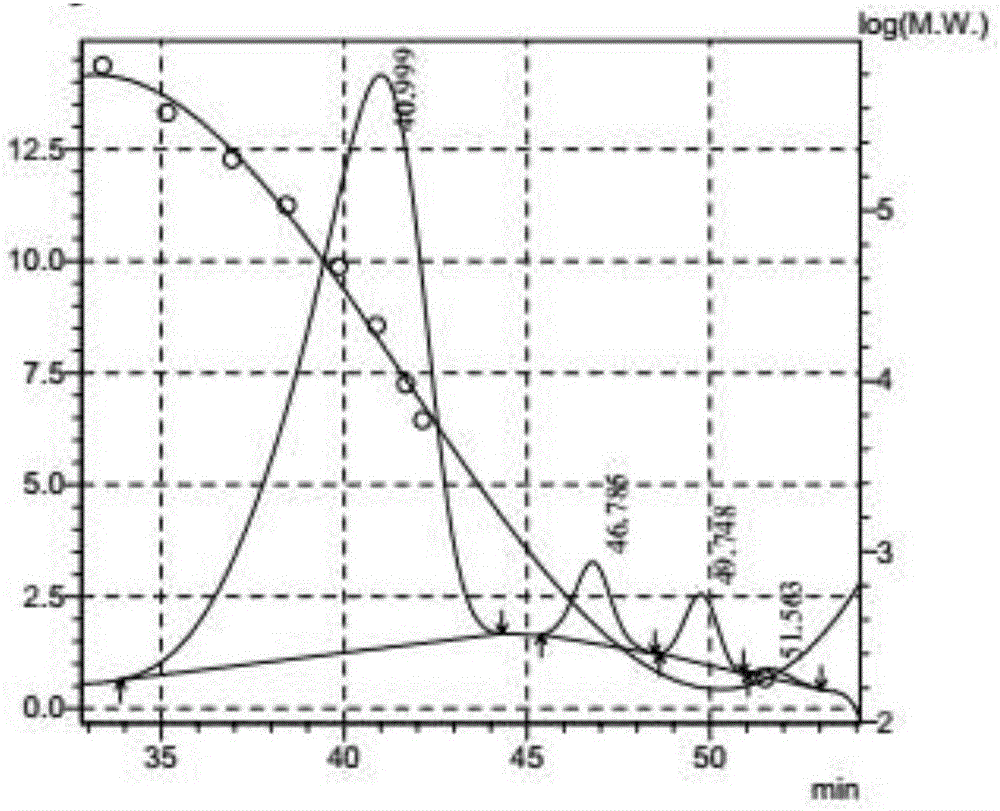Ochrobactrum intermedium extracellular polysaccharide and application of ochrobactrum intermedium extracellular polysaccharide to aspect of soil improvement
A technology of Bacillus intermedius and extracellular polysaccharide, which is applied in the field of biosorbent adsorption of metal ions and Bacillus intermedius exopolysaccharide, can solve the problem of less research on bacterial polysaccharides, and achieve the effect of strong ability to adsorb metal ions and great application value.
- Summary
- Abstract
- Description
- Claims
- Application Information
AI Technical Summary
Problems solved by technology
Method used
Image
Examples
Embodiment 1
[0029] Screening and Species Identification of Exopolysaccharide Strains of Pallidum intermedium
[0030] The strain separation carbon is from the moldy astragalus dregs, and the microorganisms with nitrilase activity are obtained by screening and separating from the astragalus dregs. Liquid medium composition: peptone 8g / L, yeast powder 5g / L, sodium chloride 10g / L, pH 7.0; plate medium composition: peptone 8g / L, yeast powder 4g / L, sodium chloride 10g / L , agar powder 15g / L; screening medium composition: glycerol 3g / L, magnesium chloride 0.4g / L, magnesium sulfate 0.5g / L, sodium hydrogen phosphite 2g / L, potassium hydrogen phosphite 2g / L, after sterilization Add 5 mL / L of β-aminopropionitrile. Dilute different gradients of the culture medium that grows bacteria on the screening medium, spread on the plate, select different single colonies and inoculate them into the screening medium for 72 hours of cultivation, centrifuge to obtain the bacteria, take 0.5g of bacteria and centrif...
Embodiment 2
[0032] Fermentation of Pallidum intermedia ZY03 and preparation of resting cells
[0033] Inoculate Pallidum intermedium ZY03 in potato culture medium, culture in a medium with a temperature of 30°C, a rotation speed of 180rpm, and a ventilation ratio of 1:1 for 18-24 hours to obtain a seed culture solution; the seed culture solution is inoculated into a polysaccharide fermentation medium Among them, the pH of the polysaccharide fermentation medium is natural, and the components are as follows in terms of mass percentage: 20% of potato juice, (NH 4 ) 2 SO 4 0.8%, Glucose 2%, CaCl 2 0.02%, MgSO 4 0.01%; centrifuge at 10000rpm for 15 minutes to collect the bacterial cells, wash with normal saline for 1-2 times, and obtain resting cells of P. intermedium ZY03.
Embodiment 3
[0035] Filter the thalline cell fermentation broth in Example 2 to obtain wet thallus, place them in 4 identical polysaccharide fermentation mediums respectively, the thalline mass concentration is 5%, and ferment 2, 3, 4, 5 days; the fermentation broth was removed by high-speed centrifugation to remove bacteria, the supernatant was vacuum concentrated to 1 / 3 of the volume of the original solution, precipitated with 2 times the volume of absolute ethanol, and the precipitate was collected by centrifugation. The precipitate was deproteinized by the Sevag method, and then ethanol For precipitation, the precipitate was washed 2 to 3 times with an equal amount of 75% ethanol, and then dried to obtain the extracellular crude polysaccharide product. The polysaccharide content was determined by the phenol-concentrated sulfuric acid method in Table 1.
[0036] Table 1 The content of bacterial polysaccharides after different days of fermentation
[0037]
PUM
 Login to View More
Login to View More Abstract
Description
Claims
Application Information
 Login to View More
Login to View More - Generate Ideas
- Intellectual Property
- Life Sciences
- Materials
- Tech Scout
- Unparalleled Data Quality
- Higher Quality Content
- 60% Fewer Hallucinations
Browse by: Latest US Patents, China's latest patents, Technical Efficacy Thesaurus, Application Domain, Technology Topic, Popular Technical Reports.
© 2025 PatSnap. All rights reserved.Legal|Privacy policy|Modern Slavery Act Transparency Statement|Sitemap|About US| Contact US: help@patsnap.com



